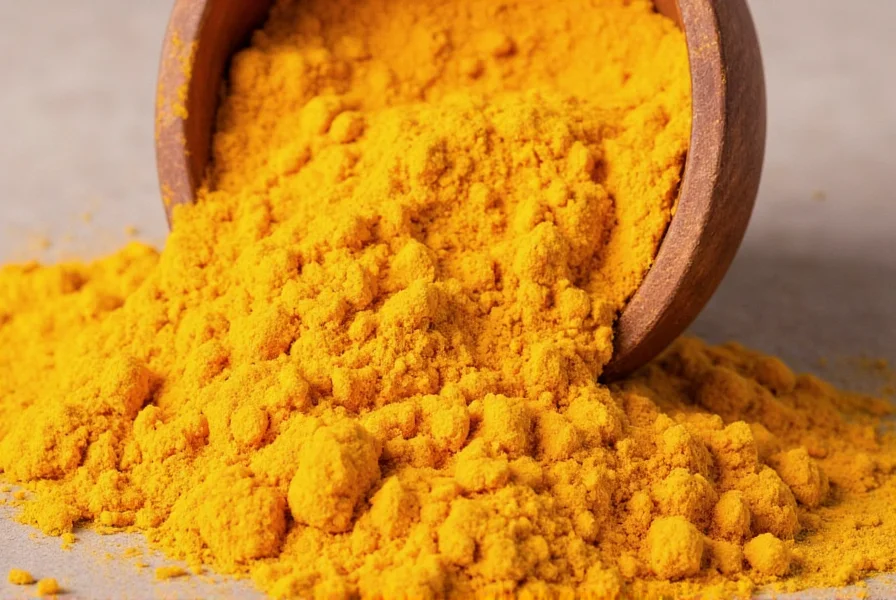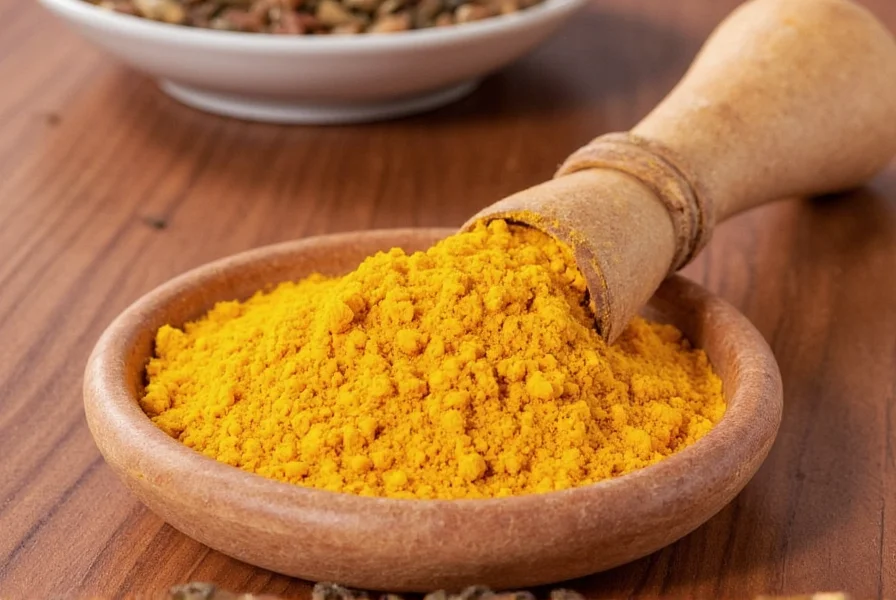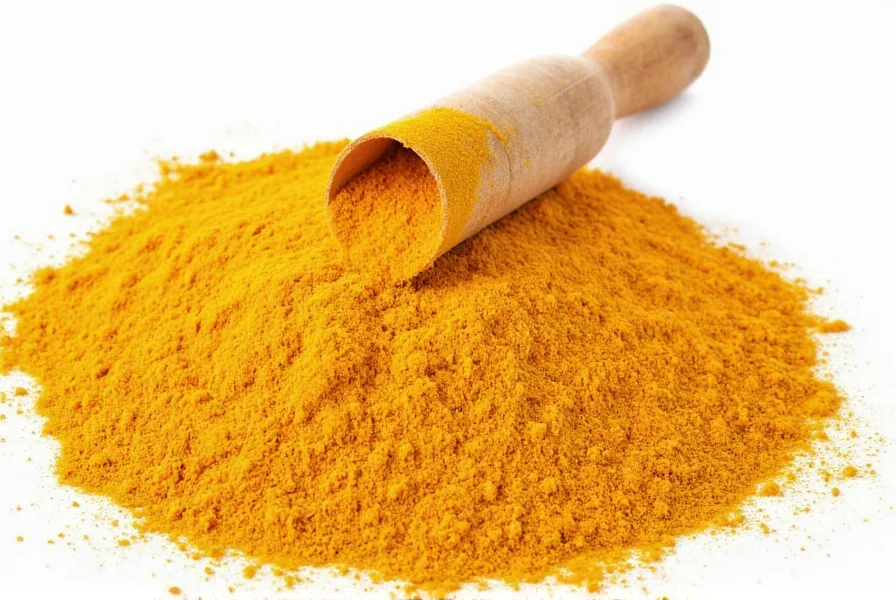While turmeric is widely celebrated for its anti-inflammatory properties and potential health benefits, understanding its possible digestive side effects is crucial for safe consumption. Many people incorporate turmeric into their diets through cooking or supplements without realizing that excessive intake can lead to gastrointestinal discomfort.
Understanding Turmeric's Impact on Digestion
Turmeric contains curcumin, the compound responsible for both its vibrant yellow color and many of its health benefits. However, this same compound can affect digestive processes in ways that sometimes lead to diarrhea. Research published in Food and Chemical Toxicology indicates that curcumin stimulates the gallbladder to produce more bile, which helps with fat digestion but can cause loose stools when produced in excess.
Additionally, turmeric may increase intestinal motility—the speed at which food moves through your digestive tract. For some individuals, particularly those with pre-existing digestive conditions, this accelerated movement doesn't allow sufficient time for proper water absorption in the colon, resulting in diarrhea.
Scientific Evidence on Turmeric and Digestive Side Effects
A comprehensive review in the Journal of Medicinal Food analyzed multiple clinical trials involving turmeric supplementation. The review found that gastrointestinal issues, including diarrhea, were the most commonly reported side effects, affecting approximately 6-8% of participants taking turmeric supplements.
Another study published in Phytotherapy Research specifically examined the relationship between curcumin dosage and digestive tolerance. Researchers discovered that doses exceeding 1,000 mg of curcumin daily significantly increased the likelihood of digestive discomfort compared to lower doses.
| Dosage Level | Curcumin Amount | Reported Diarrhea Incidence |
|---|---|---|
| Low | Under 500 mg daily | 1-2% |
| Moderate | 500-1,000 mg daily | 3-5% |
| High | 1,000-2,000 mg daily | 6-9% |
| Very High | Over 2,000 mg daily | 10-15% |
The table above summarizes findings from multiple clinical studies examining the relationship between turmeric dosage and diarrhea incidence. These percentages represent averages across various study populations.

Individual Factors Influencing Digestive Reactions
Not everyone experiences digestive issues with turmeric. Several factors determine whether someone might develop diarrhea after consuming turmeric:
- Individual sensitivity - Some people naturally have more sensitive digestive systems
- Current digestive health - Those with IBS, Crohn's disease, or other gastrointestinal conditions may be more susceptible
- Form of turmeric - Supplements often cause more issues than culinary use due to concentrated doses
- Timing of consumption - Taking turmeric on an empty stomach increases the likelihood of digestive upset
- Combination with other substances - Turmeric combined with other digestive stimulants (like black pepper) may amplify effects
Safe Consumption Guidelines for Turmeric
To enjoy turmeric's benefits while minimizing digestive side effects, consider these evidence-based recommendations:
- Start with small amounts (about 500 mg of curcumin daily) and gradually increase as tolerated
- Always consume turmeric with food rather than on an empty stomach
- Choose formulations with enhanced absorption that allow for lower dosing
- Stay well-hydrated, as diarrhea can lead to fluid loss
- Consider taking breaks from supplementation (such as 5 days on, 2 days off)
When to Consult a Healthcare Provider
While occasional mild digestive upset from turmeric is common and usually resolves on its own, certain symptoms warrant medical attention:
- Diarrhea lasting more than 48 hours after stopping turmeric
- Severe abdominal pain accompanying digestive issues
- Blood in stool
- Signs of dehydration (dizziness, reduced urination, extreme thirst)
- Diarrhea that interferes with daily activities
Individuals with gallbladder issues, bile duct obstruction, or those taking blood thinners should consult their healthcare provider before using turmeric supplements, as it may exacerbate these conditions or interact with medications.

Conclusion: Balancing Benefits and Potential Side Effects
Turmeric remains a valuable addition to many people's health regimens when used appropriately. The potential for diarrhea should not deter responsible use but rather inform smarter consumption practices. By understanding your personal tolerance, starting with moderate doses, and consuming turmeric with meals, you can typically enjoy its benefits while minimizing digestive discomfort. As with any supplement, listening to your body's signals and adjusting accordingly is the key to safe and effective use.
Frequently Asked Questions
How quickly can turmeric cause diarrhea after consumption?
For sensitive individuals, turmeric can cause diarrhea within 1-2 hours of consumption, especially when taken in supplement form on an empty stomach. However, some people may experience delayed effects appearing 6-12 hours later. The timing varies based on individual digestive sensitivity, dosage, and whether turmeric was consumed with food.
Does turmeric in food cause diarrhea like supplements do?
Typically, culinary use of turmeric in cooking is less likely to cause diarrhea than supplements. The amount of curcumin in a typical curry (about 20-50 mg per teaspoon of turmeric powder) is significantly lower than supplement doses (often 500-1,000 mg). Most people can safely consume turmeric in food without digestive issues, though extremely sensitive individuals might still experience mild effects.
Can I build tolerance to turmeric if it causes diarrhea?
Yes, many people can build tolerance to turmeric by starting with very small doses and gradually increasing over time. Begin with 250-500 mg of curcumin daily (or culinary amounts in food) and increase by 250 mg every 3-4 days as tolerated. Taking breaks (such as 5 days on, 2 days off) can also help maintain tolerance. Most people develop tolerance within 2-4 weeks of gradual introduction.
What's the difference between turmeric and curcumin regarding digestive side effects?
Turmeric is the whole spice containing about 2-8% curcumin by weight, while curcumin is the specific active compound. Supplements often contain concentrated curcumin (95% curcuminoids), which is more likely to cause digestive side effects than whole turmeric powder. The other compounds in whole turmeric may actually help moderate curcumin's effects on digestion, making culinary turmeric generally better tolerated than high-dose curcumin supplements.
Are there forms of turmeric less likely to cause diarrhea?
Yes, certain formulations may reduce digestive side effects. Look for turmeric products that include piperine (from black pepper) in appropriate ratios, as this enhances absorption and allows for lower dosing. Liposomal curcumin, curcumin phytosomes, and nanoparticle formulations also improve bioavailability while potentially reducing gastrointestinal irritation. Culinary use of turmeric in cooked dishes is generally the best tolerated form.











 浙公网安备
33010002000092号
浙公网安备
33010002000092号 浙B2-20120091-4
浙B2-20120091-4